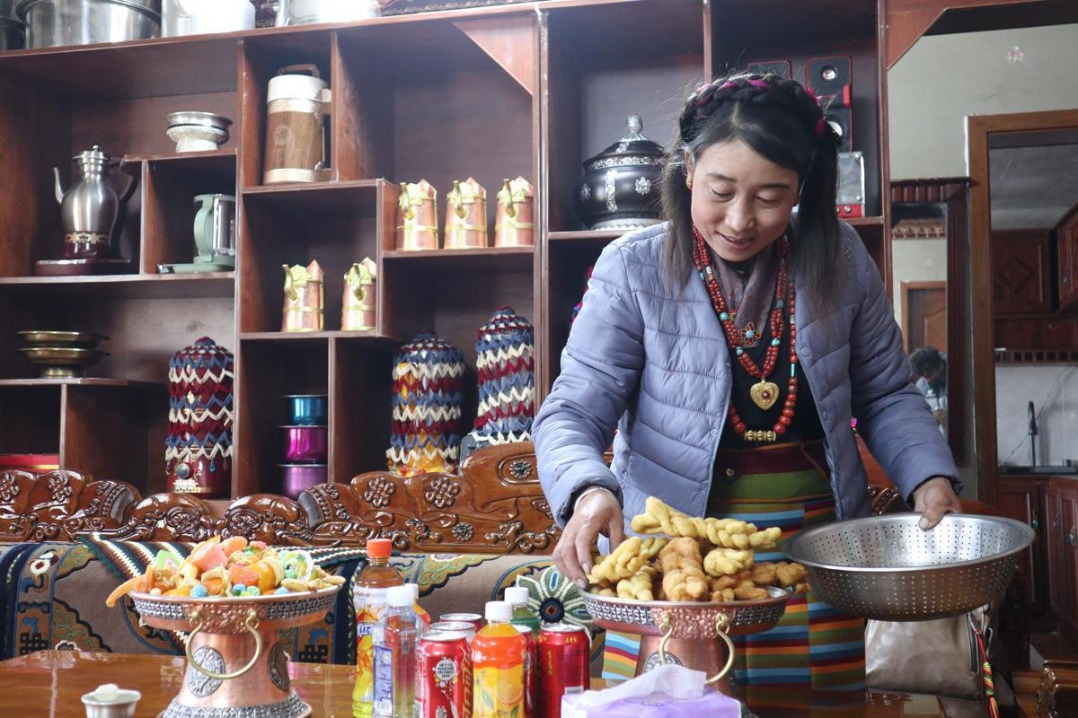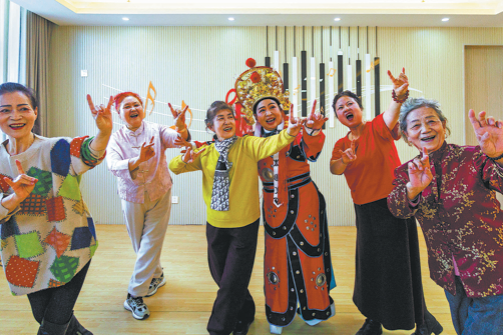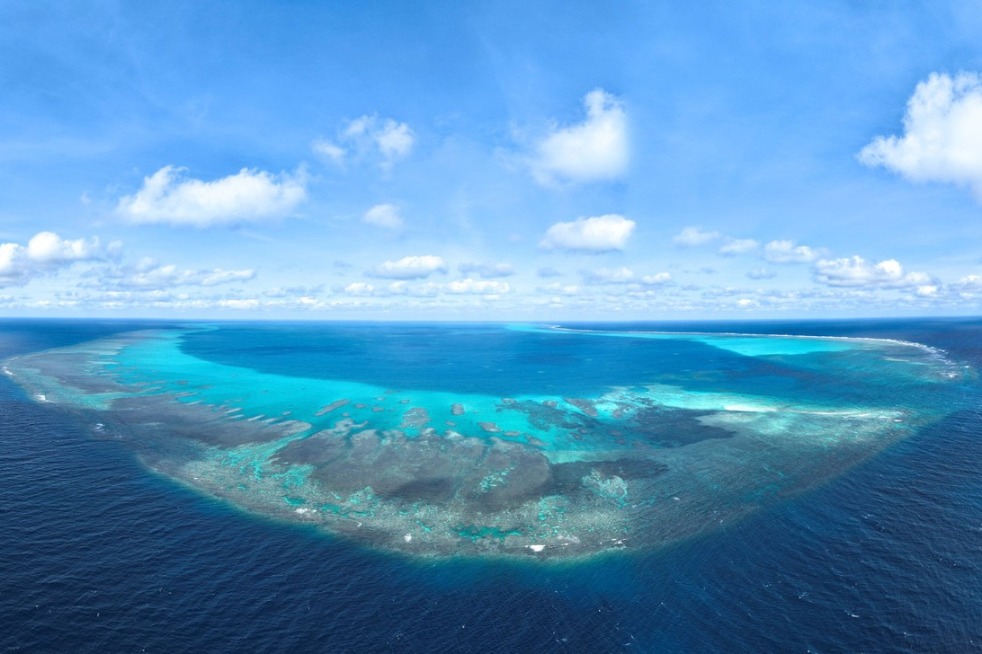Asia moves to center stage


Recent series of summits showed Asia is stepping to the fore in global governance
Asia has just experienced a summit season. The Shanghai Cooperation Organization summit, a series of leaders' meetings on East Asia Cooperation, the G20 summit and the APEC Economic Leaders' Meeting were all hosted by Asian countries. On Asia's stage, the spotlight naturally fell on China.
Multilateral summits are platforms for countries to discuss their differences and seek the greatest common divisor in order to build consensus. Therefore, the phenomenon of crowed multilateral summits at the end of the year appeared. In fact, since September, Chinese leaders have participated in person in offline summits including the SCO summit, the G20 summit, APEC meeting, and the series of leaders' meetings on East Asia cooperation, to form a consensus on securing a negotiated end to the Russia-Ukraine conflict and hoping that China and the United States can move toward more positive and effective communication. It is suggested that the most urgent issues of cooperation can be summarized as "five-color cooperation". For example, gold cooperation is food security cooperation, green cooperation is green, low-carbon and ecological climate cooperation, white cooperation is public health and anti-pandemic cooperation, and blue cooperation is maritime economic cooperation. There is also a special color, which is colorless cooperation — the ubiquitous digital transformation and digital economy cooperation.
The summit season reflected Asia's approach to integration and hospitality. The summits were hosted by Indonesia (the G20 summit), Uzbekistan (the SCO summit), Thailand (the APEC meeting), and Cambodia (the series of East Asia cooperation meetings). These Asian countries were able to overcome the difficulties to host the summits, which is a great achievement in itself.
This Asian moment indicates the following elements.
First, Asian-style coordination. Although the summits were held one after another, thanks to the coordination between Cambodia, Thailand and Indonesia, the timing was perfectly staggered, and the sequence of summits became seamless.
Second, Asian-style balance. Nowadays, the political logic and security logic of the world are suppressing the economic logic and development logic, but Asian countries prefer balanced development. Therefore, the summits hosted by Asian countries put more emphasis on development and cooperation, such as emphasizing cooperation between Asia and Europe, further implementing East Asia cooperation, the Regional Comprehensive Economic Partnership, advancing the Comprehensive and Progressive Agreement for Trans-Pacific Partnership and the Digital Economic Partnership Agreement, advocating open regionalism.
Third, Asian-style power. In the context of the strategic competition between China and the US, Asian diplomacy was highlighted. For example, the Indonesian president visited several member countries of the G20 before the summit in Bali, and actively contributed to the formation of consensus and innovative ways of cooperation in the course of the meeting. The Association of Southeast Asian Nations used the East Asia meetings as an opportunity to strengthen and upgrade its comprehensive strategic partnership with China, the US and other major powers, trying to correct the imbalance in the relationship between major powers to a certain extent.
Fourth, Asian-style cognition. The peace, security, development, governance and trust deficits have all been intensifying at the same time. Due to the lack of face-to-face communication between leaders during the pandemic, the "cognitive deficit" between countries soared. Those summits organized by Asian countries have been pragmatic and efficient, making good use of the short summit time to form a consensus, alleviating the "perception deficit" to a certain extent.
China, as a member of Asia, was not only a guest of the summit season, but also one of the leading actors. President Xi Jinping first attended the SCO Summit in September, which did not include the US, and then attended the G20 and APEC in November, which included the US, and realized the dialogue between Chinese and US leaders ahead of the G20 Summit, realizing the "China-US-China's neighborhood "summit link. At the summit, President Xi expressed China's world view and its view of the Asia-Pacific in the post-pandemic era, and proposed specific cooperation initiatives. The speech energized world development, boosted confidence and led future development. Moreover, China's initiatives have been widely endorsed and supported.
Looking back at the Asian summit season, there are three important takeaways.
First, the summit season reflected true multilateralism, in which international affairs were handled together, and the recognition that the international community should be governed by consensus and universally accepted rules, rather than by one or a few countries giving orders, was reinforced.
Second, the summit season showed that to realize common development, countries must actively implement related policies, especially jointly confronting trade protectionism, promote the Regional Comprehensive Economic Partnership, the Comprehensive and Progressive Agreement for Trans-Pacific Partnership and the Digital Economic Partnership Agreement, and all parties should do what they say, reflecting the sincerity of cooperation and development.
Third, Asia should assume a more proper role in global governance. The new drive of the world's economic development, peaceful development and green development comes from Asia. Asia should take up the burden of global governance, linking East and West, North and South, running through the tangible infrastructure and the invisible digital economy, and integrating global development as a whole.
Zhai Kun is a professor at the School of International Studies at Peking University and a senior research fellow at the Institute of International and Strategic Studies. Xiong Lan is a research fellow at the Center for ASEAN Studies of Peking University. The authors contributed this article to China Watch, a think tank powered by China Daily.
Contact the editor at editor@chinawatch.cn


































